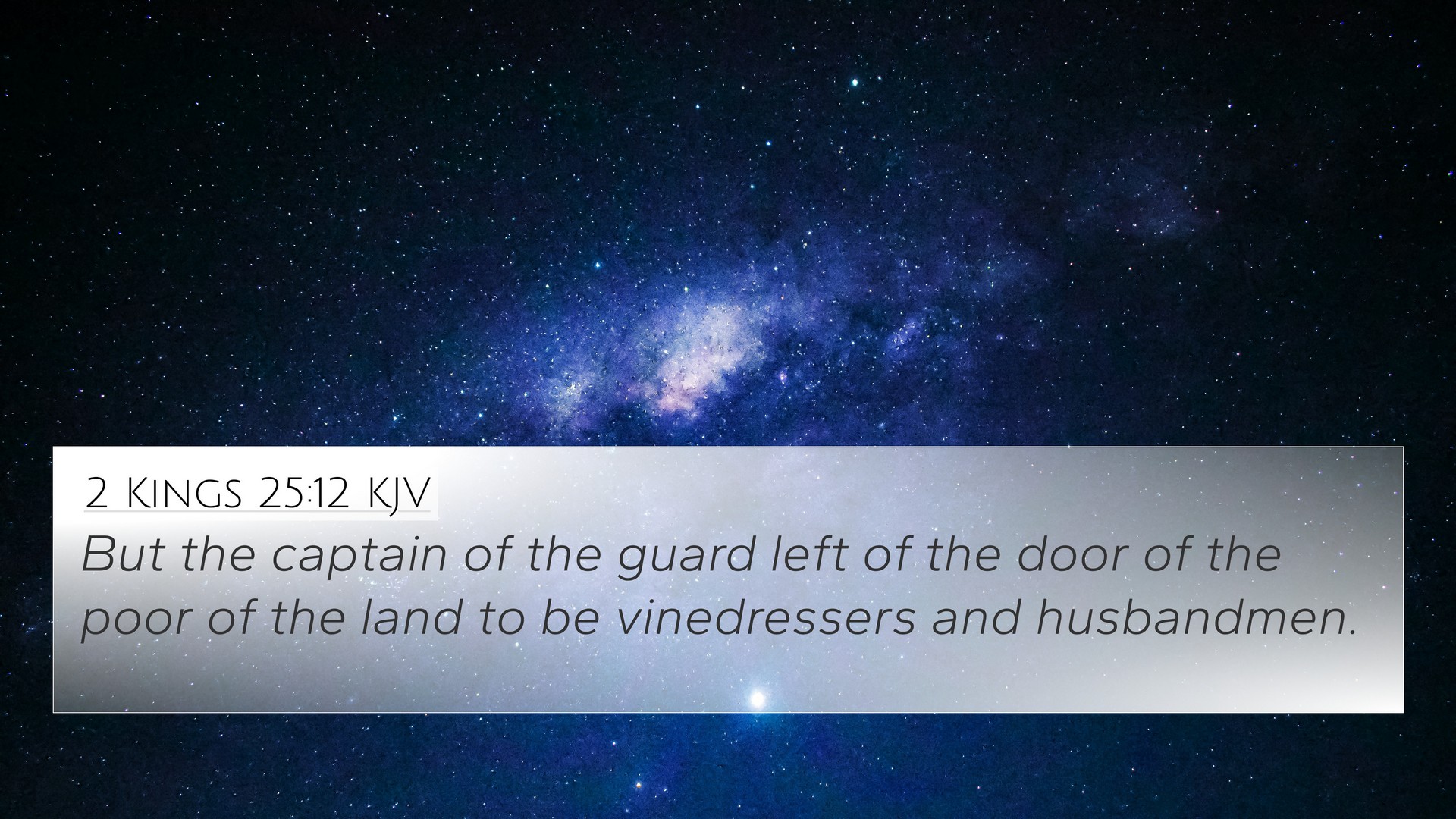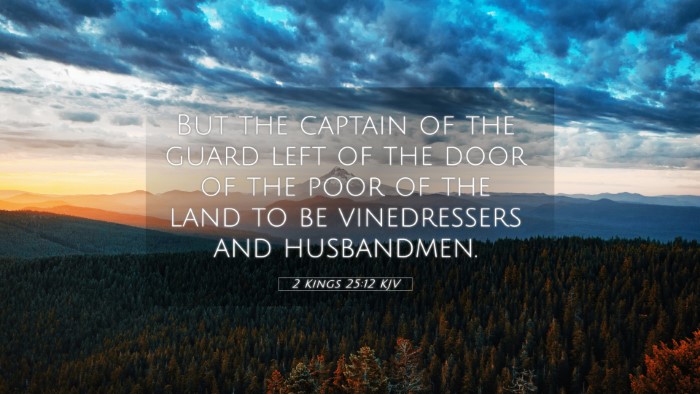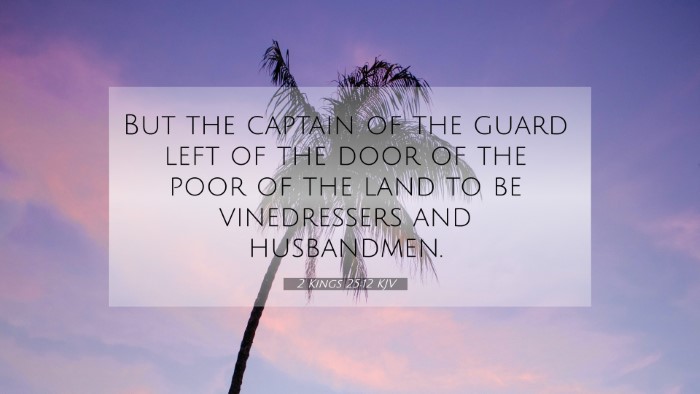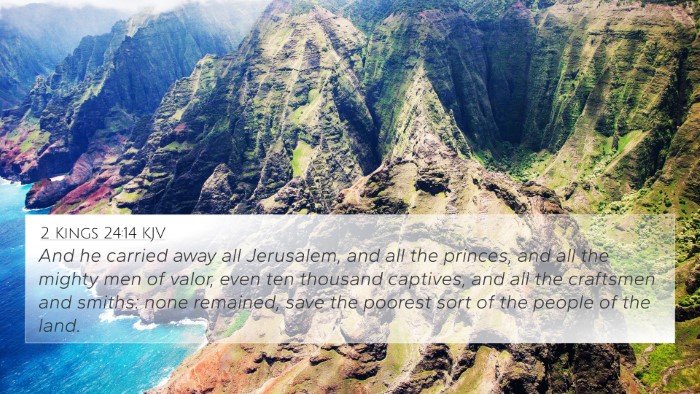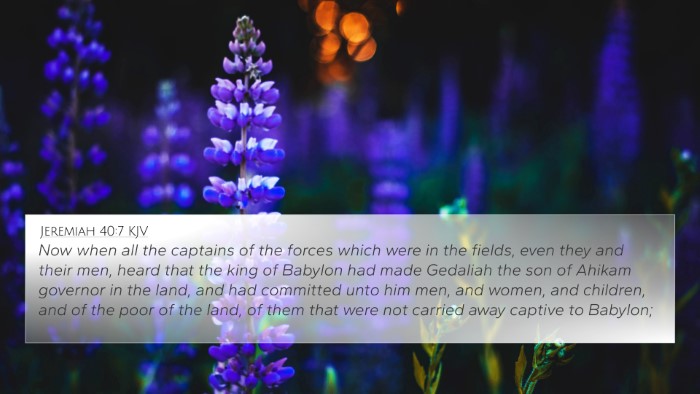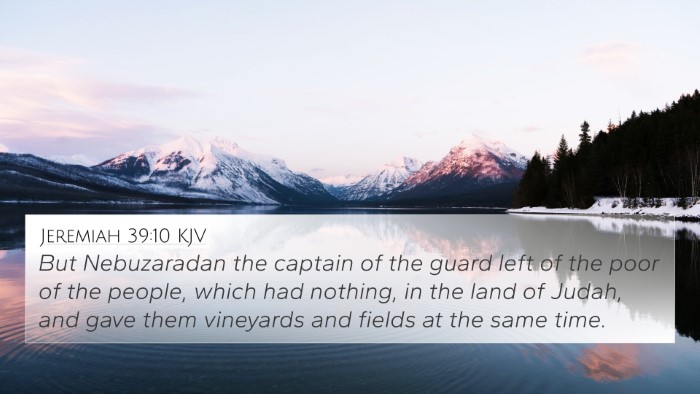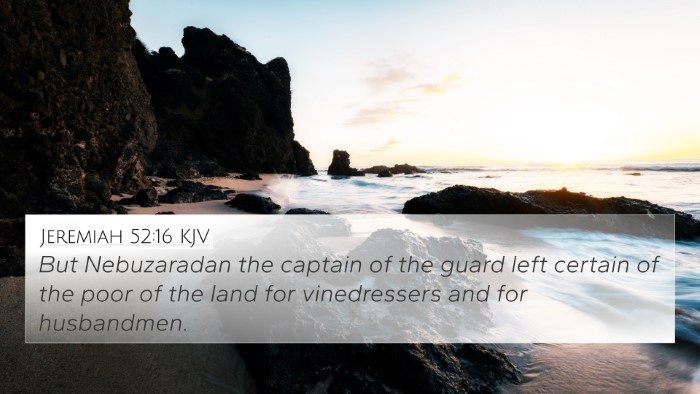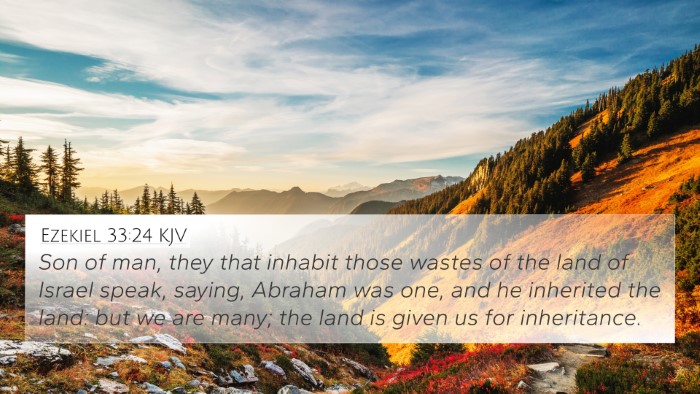Understanding 2 Kings 25:12
Verse: "But the captain of the guard left of the poor of the land to be vinedressers and husbandmen." - 2 Kings 25:12
Summary of the Verse's Meaning
This verse illustrates the compassion of the Babylonian captors, who decide to leave some of the poorer individuals in Judea to work the land after the conquest. It serves as a poignant reminder of the harsh realities faced by the people of Judah after the fall of Jerusalem, while also hinting at a sliver of hope for the remnant that remains.
Insights from Public Domain Commentaries
Various commentaries provide critical perspectives on the broader implications of this verse:
- Matthew Henry: He emphasizes the mercy shown by the captain of the guard, indicating that leaving poor individuals behind helped maintain agricultural output, which was essential for survival in the aftermath of destruction. Henry also reflects on the theological view of God's providence, suggesting that through their suffering, the people of Judah may yet find redemption and restoration.
- Albert Barnes: Barnes points out the survival of a few inhabitants as a potential foundation for future restoration. He interprets this act as God's way of preserving a remnant that could one day repopulate and rejuvenate the land, foretelling the eventual return of the exiled Jews.
- Adam Clarke: Clarke highlights the socio-economic implications of this verse, noting that the Babylonians likely aimed to keep the land productive for taxation purposes. His analysis also ties this back to the Jewish identity and their connection to the land, suggesting that even in captivity, their link to the soil remained significant.
Related Bible Cross-References
The following verses provide connections and insights that relate thematically to 2 Kings 25:12:
- Jeremiah 52:16: This parallel account notes that a similar fate befell the poor and underscores their plight post-conquest.
- Isaiah 37:31: This prophesies a remnant returning and planting in the land, resonating with the notion of hope amidst despair.
- Ezra 1:3: Points to the eventual encouragement for those left behind to return and rebuild, illustrating continuity from abandonment to restoration.
- Ezekiel 37:21-22: The reuniting of Israel and Judah as one nation reflects the fulfillment of promises tied to the land.
- Psalm 137:1-4: Reflects the sorrow of the exiled Jews, providing context for the emotional state of those who remained.
- 2 Chronicles 36:20-21: Offers a broader narrative about the exile, further illuminating the consequences of Jerusalem's fall.
- Deuteronomy 28:64-67: This passage discusses the scattering of the Israelites, connecting their fate with the consequences of disobedience.
- Amos 9:14: This speaks of the restoration of the fortunes of Israel, emphasizing the cyclical nature of their narrative.
- Haggai 2:9: Discusses the glory of the latter temple, which relates to the idea of something great arising from brokenness.
- Zechariah 10:6: Prophecies of God's promise to strengthen the remnant, emphasizing the hope amidst the despair seen in 2 Kings 25:12.
Thematic Connections
The verse shines a light on several overarching themes within Scripture:
- Hope and Restoration: There is a theme of God's faithfulness in preserving a remnant after judgment, which resonates through the prophetic books.
- Divine Providence: The mercy shown by the captors acts as a testament to God's ongoing care for His people, even amidst foreign dominion.
- Suffering and Identity: It underscores the struggle of the Jewish identity tied intimately to their land and heritage, despite their circumstances.
Inter-Biblical Dialogue
2 Kings 25:12 serves as a nexus connecting various books of the Bible, inviting deeper reflection through inter-Biblical dialogue. The connections between Old and New Testament themes provide fruitful ground for understanding God's plan through historical events.
Conclusion
In summary, 2 Kings 25:12 not only offers a snapshot of the immediate aftermath of Jerusalem's fall but also embeds itself within the broader narrative of redemption found throughout the Bible. Through cross-referencing and comparative analysis, the verse enriches our understanding of God’s plan and the resilience of His covenant people, offering guidance for those studying the scriptures.
